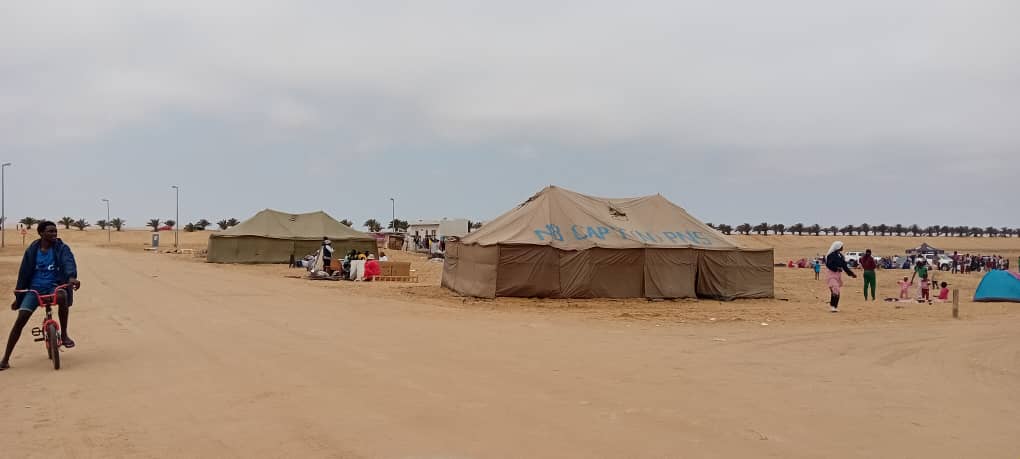STRANDED rock lobsters washed up on the beaches near Swakopmund after an outbreak of red tide have found temporary refuge in the town’s aquarium, sasy Fisheries Minister Dr Abraham Iyambo.
“About half a ton of live rock lobsters were collected by fisheries inspectors and other ministerial staff and put them in the aquarium and when conditions in the ocean waters improve, these lobsters will be released,” the Minister said in a statement on Tuesday. The current red tide in the Atlantic Ocean along the central beaches has caused many rock lobsters to move to more oxygen-rich areas like the waves breaking on the beach, but were washed ashore together with rock suckers sole, eels, red bait and octopus.The current red tide in the Atlantic Ocean along the central beaches has caused many rock lobsters to move to more oxygen-rich areas like the waves breaking on the beach, but were washed ashore together with rock suckers sole, eels, red bait and octopus.
Stay informed with The Namibian – your source for credible journalism. Get in-depth reporting and opinions for
only N$85 a month. Invest in journalism, invest in democracy –
Subscribe Now!










